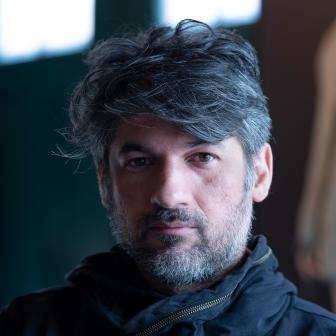Ricardo Domeneck

Ricardo Domeneck
Snelle introductie
Ricardo Domeneck is een van de meest productieve en veelzijdige Braziliaanse dichters van het moment. Lenig maakt hij gebruik van verschillende media, van bundel en boek tot video, performance, muziek en visual arts. Domeneck identificeert zichzelf als ‘een auteur uit São Paulo, woonachtig in Berlijn.’ Hij verwoordt daarmee zijn kritische houding tegenover zijn thuisland, dat systematisch de inheemse bevolking van Brazilië het leven zuur maakt. Tegelijk distantieert hij zich van de Braziliaanse literatuur die geen oog heeft voor vrouwelijke auteurs en schrijvers van kleur. Domeneck is een bezweerder, een dichter die de kracht van zijn taal weet te maximaliseren. Filosofie en geschiedenis mengen zich met banale lijfelijkheid en observaties van het dagelijks leven, in een fonkelende, kritische haast tastbare taal. Kunstmatige grenzen en koloniale referentiekaders worden in zijn gedichten voortdurend verlegd, evenals normatieve opvattingen over seksualiteit. Domeneck heeft een bijzondere interesse in het mannelijk lichaam, waarvan hij de geneugten, zowel tonaal als thematisch, nauw associeert met de erotiek van de taal en de handeling van het schrijven zelf. In 2015 verscheen bij Perdu onder de titel Het verzamelde lichaam een bloemlezing uit zijn werk in de Nederlandse vertaling van Bart Vonck.
Volledige biografie (Engels)
Ricardo Domeneck (Bebedouro, 1977) is one of the most prolific and versatile of a generation of younger poets from Brazil. He easily moves between a variety of media, including books, video, performance, music and visual art. Apart from being a poet, he also works as a critic and translator. His translations include Frederike Mayröcker, Jack Spicer, H.C. Artmann and many others, published on the regularly updated online literary review Modo de Usar (Manual), which he co-edits with Marilia Garcia and Angélica Freitas. He is one of the co-founders of the Berlin-based artist collective Gully Havoc, which hosts readings, performances and other live acts on a weekly basis. His anthology of Berlin-based international writers will be published with the collective in 2016. To date, he has published six books of poetry, the most recent one being Medir com as própias mãos a febre (Using one's own hands to measure the fever; 2015). Domeneck performs extensively at poetry festivals across the world and has been widely translated into other languages, including English, French, German, Spanish, Russian and Slovenian. A Dutch selection from his work was published recently in The Netherlands with Perdu, Amsterdam, as Het verzamelde lichaam (The collected body; 2015), translated by Bart Vonck.
From the abstract, dense lyrics that characterized his first book of poetry Carta aos anfibios (Letter to the amphibians) from 2005, Domeneck's work has gradually moved toward a more direct vocabulary, in which fragmentation and experimentation are pushed into the territory of the body – a shift that was completed with his 2012 volume Ciclo do amante substituível (Cycle of the substitutable lover). Consistent over the years has been the poet's highly critical relationship to his home country Brazil, which he chides for its systematic destruction – under the pretext of economic development – of indigenous populations, and to Brazilian literature, whose treatment of its woman and black writers he deplores. Strikingly, Domeneck does not identify as a Brazilian poet but once described himself as a ‘writer from São Paulo who lives in Berlin’. Artificial borders and colonial frames of reference are continually displaced in his poems, as are normative conceptions of sexuality. Philosophy and history intermingle with the banalities of everyday life, as do the personal and the political and many cultural registers, ranging from pop to poetry. Domeneck has a special interest in the male body, the pleasures of which he intimately associates, both tonally and thematically, with the eroticism of language and the act of writing itself. It harbors a utopian potential: for Domeneck, the body is a site of queer microsubversion, of a joyful revolt against the repressive structures of society.
Bibliography
Poetry
Carta aos anfibios (Letters to amphibians), Bem-Te-Vi, Rio de Janeiro, 2005
a Cadela sem logos (the Bitch without logos), Cosac Naify, São Paulo, 2007
Sons: Arranjo: Gargante (Sounds: Composition: Throat), Cosac Naify, São Paulo, 2009
Cigarros na cama (Cigarettes in bed), Berinjela/Modo de Usar & Co, Rio de Janeiro, 2011
Ciclo do amante substituível, Editora7Letras, Rio de Janeiro, 2012
Medir com as própias mãos a febre, Editora7Letras, Rio de Janeiro, 2015
In Dutch translation
Het verzamelde lichaam(The collected body), trans. Bart Vonck, Perdu, Amsterdam, 2015
As editor
Hilda Magazine
Links
Domeneck’s personal blog
‘Six songs of causality’ in The Green Integer Review
Video poems on Hilda
Sponsors
























